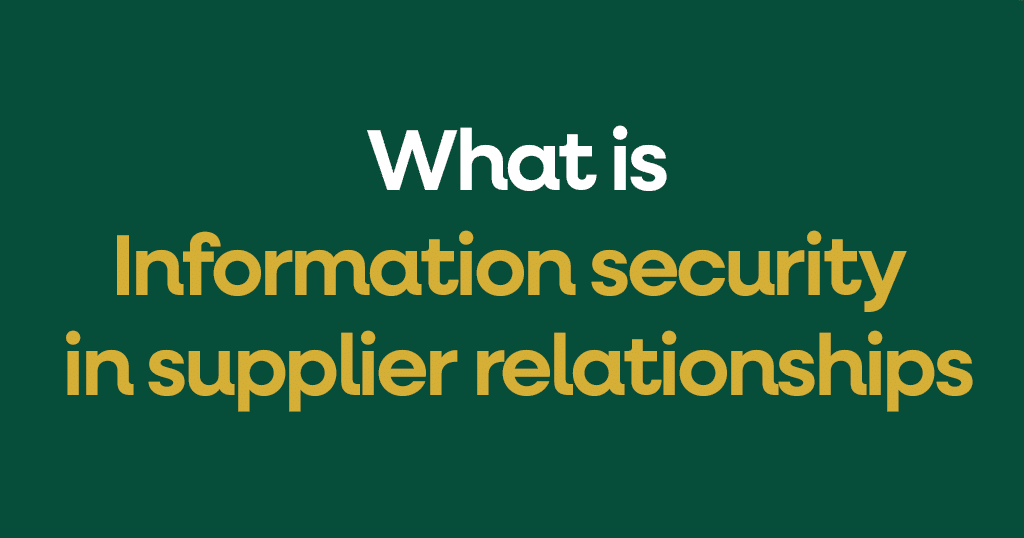What is Information security in supplier relationships?
Information security in supplier relationships refers to the process of ensuring that information and data shared with or managed by third-party suppliers are protected.This means establishing rules and safeguards to keep your sensitive information safe when you work with other companies. It’s about making sure that your suppliers, partners, or vendors follow the same security rules you do.
Examples
- Cloud Services: A company uses a cloud service provider (like Google Drive or Microsoft Azure) to store its customer data. The company must ensure the provider has strong security measures in place, such as encryption and access controls, to protect that data.
- Payment Processing: A small business uses a third-party service to process credit card payments. The business needs to confirm that this service is compliant with security standards (like PCI DSS) to prevent fraud and protect customer card information.
- Marketing Agency: A company hires a marketing agency to handle its social media. The company must make sure the agency has secure ways to handle login credentials and other sensitive information related to the company’s accounts.
Context
In today’s interconnected world, companies often rely on other businesses to perform various tasks. From software hosting to data analysis, these partnerships are common. However, each time you share data with a third party, you create a potential risk. A data breach at one of your suppliers could expose your own company’s information. Therefore, having a clear plan for managing these relationships is essential. This plan includes setting expectations for security, regularly checking a supplier’s practices, and having contracts that specify what happens if a security problem occurs. It’s about trusting, but also verifying.
Relevant ISO 27001 Controls
The following controls from the ISO/IEC 27001:2022 standard are related to supplier agreements:
ISO 27001:2022 Annex A 5.19 Information Security In Supplier Relationships: This is the main ISO 27001 control for Information security in supplier relationships.
ISO 27001:2022 Annex A 5.20 Addressing Information Security Within Supplier Agreements: This control makes it a requirement to include information security requirements in all supplier agreements.
ISO 27001:2022 Annex A 5.21 Managing Information Security In The ICT Supply Chain: This control requires a company to have a clear policy on how it will manage information security risks with its IT suppliers.
ISO 27001:2022 Annex A 5.22 Monitor, Review And Change Management Of Supplier Services: This control states that companies should regularly check to make sure their suppliers are meeting the security requirements set out in the agreement.
ISO 27001:2022 Annex A 5.23 Information Security For Use Of Cloud Services: This control requires a company to have a clear policy on how it will manage information security risks with its cloud suppliers.
